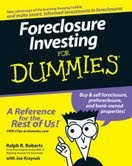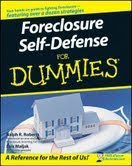
Four men in total were arrested of bank fraud in which they routinely doctored their records to hide losses, and a loan officer took kickbacks in return for doling out loans. Omni allowed people to “flip” houses three, four and even five times, artificially inflating their value,
"This is just the tip of the iceberg," said Ralph Roberts, a
Ralph Roberts, said people across the country told him they were victims of the scheme. “Everyone I talked to lost everything they put in,” said Roberts. “It wasn’t set up to make [them] money. It was set up to make inner-city real estate broker, Delroy Davy money.” Some related to Roberts that they were chauffeured around
Davy recruited “straw buyers” to obtain fraudulent loans. For years, Omni was a magnet for these so-called property flippers, some of whom made superficial repairs and then resold the homes at inflated prices.
Roberts, a Realtor from
"When people are trying to sell their homes and they have foreclosures on their street, it lowers their value and makes it harder to sell their home," Roberts continued. "Some folks won’t buy into a neighborhood with foreclosed homes. This is the spreading ripple effect."
Macomb County’s foreclosure expert was instrumental in exposing a mortgage fraud ring in 2008 and 2009 when four Michigan men were accused of mortgage fraud in which they illegally made more than $300,000 by selling two upscale homes at inflated values to a "straw buyer.”
The case, involved homes in Washington and Shelby townships that went into foreclosure, was part of a rising frequency of real estate fraud in
The growing problem prompted the Michigan Attorney General, Michael Cox and the Michigan State Police two years ago to form a mortgage fraud task force, which investigates these cases in our state.
Formally charged in 41B District Court in Clinton Township with racketeering, which carries a penalty of up to 20 years, and two counts each of false pretenses, a 10-year felony, were Dequincy Hyatt, 27, of Detroit, a managing partner in J.B.Homes and Construction; Seaesther Thompson-Hayes, 50, of Flat Rock, a mortgage broker; and Aaron Brooks Jr., 26, of Southgate, a former service representative for the People's Trust Credit Union.
A fourth man, builder Pietro Biundo, 35, who built the Washington Township house and lived in the same subdivision, was charged in a warrant with a lesser degree of false pretenses but has not been formally charged.
In the
The straw buyer obtained a mortgage for $785,000, $225,000 more than the asking price, according to Roberts. Investigators never determined amount taken or how the defendants used the additional $225,000.
Biundo reported on the deed that the home sold for $140,000, which drastically decreased the assessed value and surrounding property taxes.
In the
Gina Patrona, who lives across the street from the
"I don't think we could sell our home for half of what we put into it," she said Wednesday.
Cox in a prepared statement echoed the words of Ralph Roberts by pointing out the negative impact on the economy as a whole.
"The housing market, consumers and mortgage lenders suffer when scam artists limit the ability of law-abiding citizens to obtain loans," Cox said. "With those loans, consumers would be buying a home or a car, something our economy desperately needs for recovery."
The
“Such schemes have worsened the damage in some of
Several houses flipped with Omni National Bank financing have driven up property taxes in his
The most explosive charge in the
In a flipping case with
Omni is “the most egregious of the lenders because they’re local. They know if the appraisals are correct,” said Brewer
Brewer said Omni repossessed, sold and financed one house near him three separate times, even though for much of that time it sat vacant and windowless, with huge sections of its exterior walls torn away.
Property records confirm Omni took possession and resold the house three times in two years at rising values, following a pattern that allowed the bank to hide its growing number of foreclosures.


